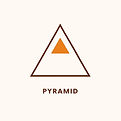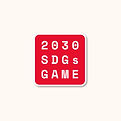About Us
Based in Thailand and working across Southeast Asia, we are a small team of systems thinkers, educators, and regenerative strategists helping people and organizations tackle complex sustainability challenges with clarity and creativity.
We go beyond checklists and targets to co-create meaningful, regenerative futures—blending rigorous analysis with engaging approaches. Our work spans climate adaptation, stakeholder engagement, biodiversity conservation, circular economy, and education.
With over 20 years of experience, we’ve supported changemakers from forest communities to UN agencies. As co-founders of Compass Education and facilitators of transformative tools like the Sustainability Accelerator toolkit and the SDG Game, we help reconnect people to purpose and systems thinking for a world in urgent need of transformation.

Our Story
Systainability Asia began its journey in 2005, driven by a vision to integrate systems thinking into sustainability practice across Asia, Robert established Systainability Asia as a boutique consultancy focused on co-creating collaborative, systems-based solutions to the region’s most pressing challenges.
Grounded in systems thinking and a commitment to regenerative development, Systainability Asia has grown into a trusted regional partner, supporting changemakers in envisioning and co - creating more resilient, interconnected, and sustainable futures.
With deep regional roots and a track record across sectors—from UN agencies to local communities—we help partners navigate complexity and build more resilient, sustainable futures.
Tools We Use
At Systainability Asia, we believe that meaningful change starts with the right tools—tools that help people see systems more clearly, collaborate more effectively, and take thoughtful action. Our carefully selected tools are grounded in systems thinking, sustainability science, and real-world practice. They are designed to spark insight, build capacity, and support individuals and organizations on their journey toward a more sustainable and regenerative future.
.jpg)
THE SUSTAINABILITY COMPASS
Orientation, note taking, inquiry and question formulation, comparative analysis, synthesis, envisioning, stakeholder engagement, management, and assessment are some of the educational uses of the Sustainability Compass.
This tool is essentially a thinking and orientation frame or lens for sustainability. It translates the complexity of the world into four simple to remember directional points (N, E, S, W), which translate into the four key dimensions of sustainability: Nature, Economy, Society, and Well-Being.
.jpg)
THE VISIS PYRAMID PROCESS
Vission >> Indicators >> Systems Structure >> Innovation >> Strategy
The Pyramid is a highly effective process tool for running sustainability workshops and group processes focused on learning, project or action planning, and developing consensus action.
"Building the Pyramid” is a very versatile group-process tool that can be used in different ways: as an introductory training on sustainable development; as a planning workshop for creating new initiatives, projects, visions, or strategies; and as a multi-stakeholder process for building consensus around a course of action. It can even do all of these three things at the same time.
.jpg)
THE AMOEBA FOR CHANGE PLANNING
Change planning, developing "change agents" for sustainability
“Amoeba” includes a set of tools for accelerating innovation, planning for change, and building competence in the art of change agentry. It includes a set of analysis tools and models, a training workshop with a roll-playing simulation game, and worksheets designed to support strategic thinking, planning, and decision making around how to introduce and spread innovative ideas in a culture or organisation.
.jpg)
THE SDGS 2030 SIMULATION
Exploring systems, choices, and possibilities for a sustainable future
The SDGs 2030 Game is an interactive simulation that brings to life the complexities and interconnectedness of our world and the United Nations Sustainable Development Goals (SDGs). Participants step into a fast-paced future world, making choices that influence global and local outcomes in real time. The game is designed to support systems thinking, deepen understanding of sustainability challenges, and inspire meaningful dialogue and action. It includes a live-facilitated experience, a set of event materials and role cards, and a debriefing framework that helps individuals and groups reflect on real-world implications and align their strategies for change.
Our Network
.png)
![RDA's Logo 2024[1].png](https://static.wixstatic.com/media/7fe52a_e07f9cf8411441a8b15cedf046c0780b~mv2.png/v1/fill/w_116,h_116,al_c,q_85,usm_0.66_1.00_0.01,enc_avif,quality_auto/RDA's%20Logo%202024%5B1%5D.png)

_edited.png)
Our Clients
We are updating this section
Private Sector Company

-
Levis Strauss & Company
-
PT ANTAM Tbk Indonesia (mining)
-
INCO Mining Tbk (Indonesia)
-
Indah Kiat Pulp and Paper (Indonesia)
-
Indonesia Power (Power generation)
-
Riau Andalan Pulp and Paper (Indonesia)
-
Losari Coffee Plantation Resort & Spa (Indonesia)
-
Bank Negara Indonesia (BNI)
-
ERM (Thailand)
-
PTT Thailand
-
Active Management Asia (Thailand)
-
YTL Power Seraya PTE. (Singapore)
-
Metso Automation Ltd. (Thailand)
-
Enterprise Asia (Singapore)
-
Diya Lima PTE. (Indonesia)
-
PACT World (Asia)
-
Social Impact (USA)
Government

-
Singapore National Environmental Agency (NEA)
-
Singapore Environment Institute (SEI)
-
Thailand Ministry of Natural Resources and Environment (MoNRE) Department of Environmental Quality Promotion (DEQP)
-
Indonesia Ministry of National Development Planning (Bappanas)
-
Ministry of Environment (Indonesia)
-
Ministry of Education and Culture (Indonesia)
-
National Development Agency (Mongolia)
-
Ministry of Environment & Tourism (Mongolia)
-
Lao PDR Ministry of Natural Resources and Environment (MONRE), Dept. of Environment
Non-Profit Organisation

-
WWF Thailand
-
WWF Myanmar
-
RECOFTC
-
Hanns Seidel Foundation (HSF)
-
Konrad Adenauer Foundation
-
Fauna and Flora International (FFI) Vietnam
-
Land Core Group (LCG) Myanmar
-
LEAD Indonesia
International Oraganisation

-
United Nations Environment Programme (UNEP)
-
United Nations Economic and Social Commission for Asia Pacific (UN-ESCAP)
-
United Nations Development Programme (UNDP)
-
UNESCO
-
UN DESA
-
ASEAN Secretariat
-
Asian Development Bank (ADB)
-
USAID ECO-Asia / AECOM International Development. (AECOM)
-
German Agency for International Cooperation (GIZ)
-
GFA Consulting
Higher Education Institutions (HEIs) & Research Institutes

-
Mekong Institute (MI)
-
French National Research Institute for Sustainable Development (IRD)
-
Auburn University Office of Sustainability (USA)
-
Asian Institute of Technology (AIT), Thailand
-
Research Institute of Innovative Technology for the Earth (RITE Japan)
-
University of New South Wales – Australia / Faculty of the Built Environment
-
Tongji University (China) – Institute for Environment and Sustainable Development (IESD)
-
Center for Global Sustainability Studies, University of Science Malaysia
-
Trisakti University – Center for Entrepreneurship Change and the Third Sector (CECT) Indonesia
-
United Nations University – Institute for Advanced Studies (UNU-IAS)



